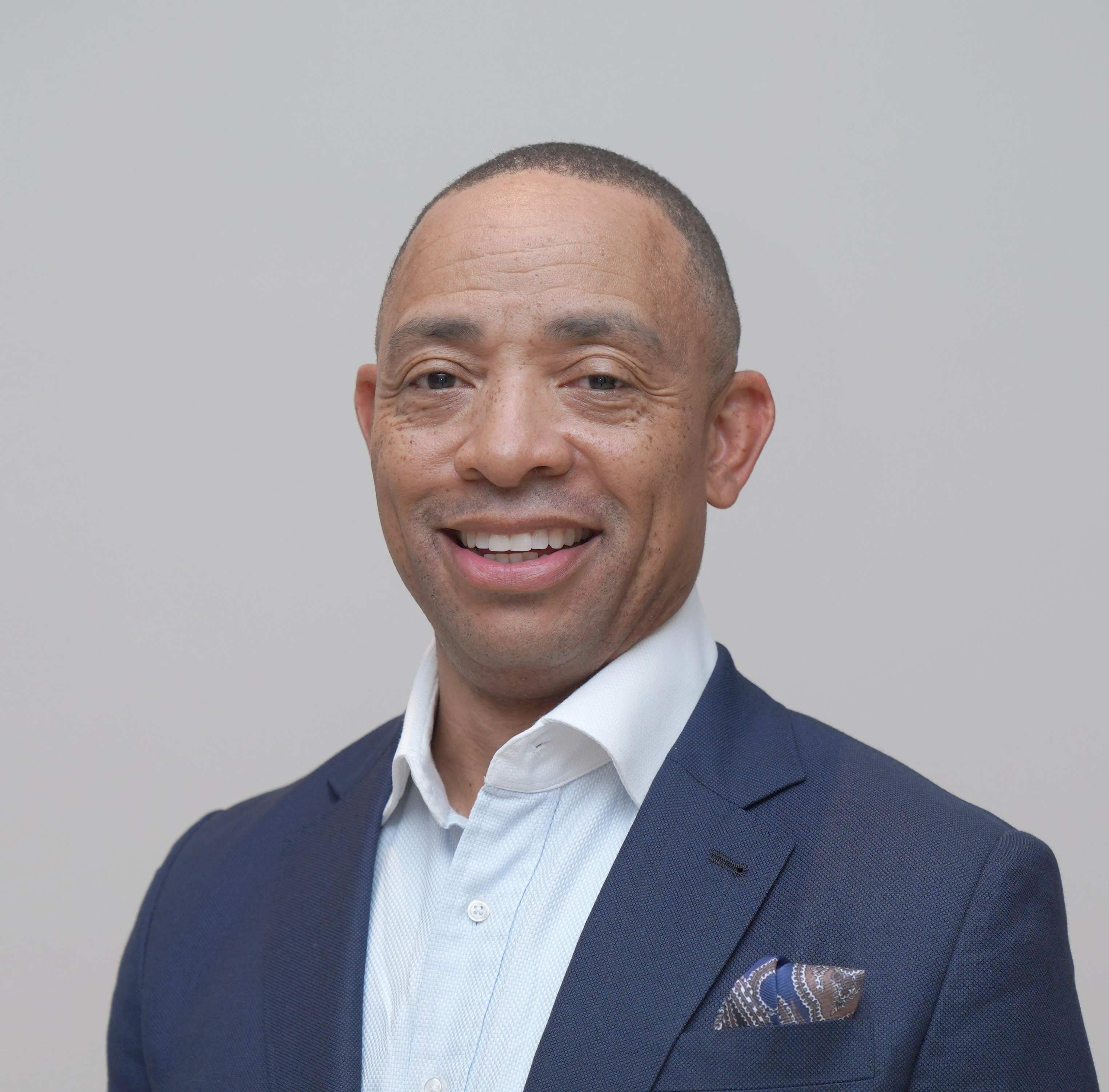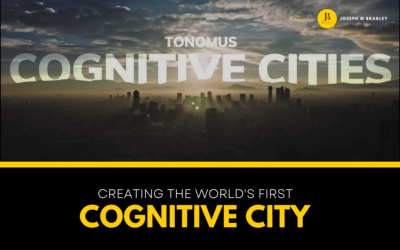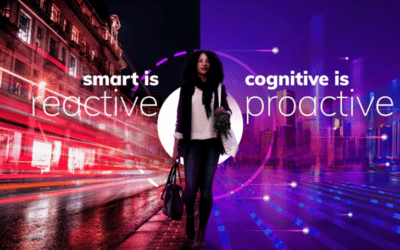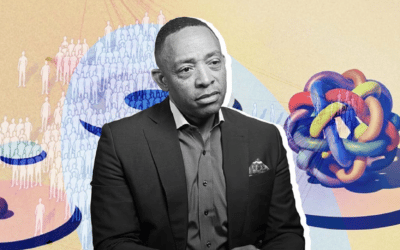Joseph Bradley, CEO of TONOMUS explains the vision and direction of the company and how they aim to be a leader in cognitive technology.
Transcript
Recently, Bloomberg Media’s Nicholas Porter caught up with Joseph Bradley, the CEO of TONOMUS, one of the sponsors of our event. You may know TONOMUS by a different name. Joseph started the conversation with a business update. Listen in.
Before we dive in, I’m excited that you have got an important update to share with us.
First, it’s great to be here. I’m super excited. We just recently announced a name change; from Tech & Digital to TONOMUS. We’re so excited to really show the world what it really means to transition from smart to cognitive.
So let’s jump into that question. That’s the first thing that I was going to ask you, is what is the difference between a cognitive city and today’s smart cities?
When you think of a smart city today, the Internet of Things or IoT comes up, and that’s exactly what a smart city centers around. It centers around machines. But when you think about the flow of life, it’s around humans, not machines. Cognitive focuses on people and human centricity. Oftentimes in a smart city, they sacrifice human centricity for efficiency. In the cognitive city, it’s all about that human experience.
Secondly, when you think about a city built around machines, it’s oftentimes about one-time transactions. In a cognitive city, it’s about establishing relationships. It’s about creating a 360-degree learning loop with how you interact with that city and learn from it, and the city learns from you.
Finally, when you take those two together, it ultimately boils down to a smart city is very, very reactive. The damage is done. Now, what do I do? The cognitive city is proactive and predictive.
What technologies that underpin a cognitive city will transform the lives for the better for the residents that live there?
When you think about transforming people’s lives, the technologies that fundamentally underpin that are AI, robotics, and trust technologies. They really change your experience, and they do that in three ways. The first you could think about is friction. How hard is it to do things? I am going to the airport now with COVID, all this friction. Imagine a world in which you see your luggage when you pack it, and the next time you see it is when you walk into that hotel and it’s there. Eliminating that kind of friction.
Secondly, it’s all about giving you time back in your life. Time is so precious these days. The ability for when you’re waiting at an airport, you’ve got an hour and a half. You know what? It’ll tell you exactly what places you can go to and where you can shop within that time frame. Or most importantly, giving you back what I’d like the call moments of truth. In other words, if you get home 30 minutes early, you get an opportunity to share a story with your son or your daughter or spend time with the quality of a loved one. Those moments of truth are what make us more human, and that’s ultimately what cognition is all about.
What role will data play in the cognitive ecosystem?
This is really an important question. When you think about data, it all starts with the word “trust”. If we don’t get your trust, we don’t get your data, if we don’t get your data, we can’t create any value. When you come to NEOM, it is your choice. You are in full control of what happens and who uses and who sees your data. We understand that could be a daunting thing for many people. If you go into today’s world, for instance, you go to a website, the privacy policy is 500 pages. You just click and accept, and hope and pray that it’s going to be okay. What we have done is create a consent management platform with a common architecture, an easy way for you to put all your preferences in. Maybe you’re not an expert in medical, so you might say, “Hey, guess what? I want to allow my doctor to set my preferences because I trust them.” You can not only do it yourself, but you can also assign proxies. The point is that you are in control.
When you come to NEOM, we want you to experience all the great benefits of predictability. We want you to enjoy yourself. We want to save you time, make things easier for you, allow you to spend more time with who you want to and do what you really want to do. In order to do that, we must have your information. If you allow us to, you will experience something that you’ve never experienced before. You will experience what it truly means to be free, what it truly means to maximize your time and enjoy your loved ones and enjoy nature. If you decide not to, then quite frankly, maybe you’re not ready for NEOM because if we don’t have your information, we can’t deliver that experience. We understand that you are in control. You’re at the center of it. But man, if you take that first step, you’ll never forget it.
How are you and your team transforming this elaborate vision into actual reality?
Everyone on the team is so excited and has been working so hard for the last 24 months. Whether it’s the billion US Dollars we put into core technology – we’re talking about AI, robotics, blockchain – whether it’s the investment in compute capacity with our hyper-scale data centers, our core network, fiber, 5G that we’ve installed in the environment, or we go back to human centricity, we invested over half a billion. And how do you foster ideas? How do you gain entrepreneurship at its core so that we can solve problems that we, quite frankly, don’t even know will exist when this project is completed? It’s all around on the infrastructure side, it’s on the application side, and more importantly, it’s really investing in people entrepreneurship.
This is the first time in history that a digital twin city is going to be built while the real physical city is being built.
We’re super excited about that. If you think about a digital twin, what does that mean? It basically means that you have a digital representation of the physical world. But here’s where it really gets cool. They also intersect one another. I could be in the digital world and trying to experience NEOM on my computer or PC, but I show up physically in NEOM as a hologram, where I can interact with someone, or we can share a story, or we can share an experience. It’s the melding of these two together that’s incredible. The experiences are just amazing. We’re super excited about that. It’s in everything we do.
When you think about digital and being able to create a digital twin, in the real world, there’s only one of you. When we go into the digital world, you could have multiple personas interacting at the same time with a variety of groups of different people. You might have one persona interacting and teaching kids around your favorite topic or subject. You might have another persona where you’re giving a lecture or you’re enjoying friend time or you’re watching sports. At the end of the day, it makes you more of you. It’s all about how we bring humanity into a city and really put humans at the center of the conversation.
Thank you, Joseph Bradley, for joining me today on the Sponsor Spotlight of Lifting the Lid on Cognitive Cities.
TONOMUS – the very name implies what we’re about. Technology, autonomous. It’s about fundamentally giving the world an opportunity to reboot, by deploying real, innovative, cognitive, solutions.
It’s a journey that’s best taken with others. Together, we are realizing our digital empowerment, a people centric future.
We want to make an impact in the way will work, live, and play.





